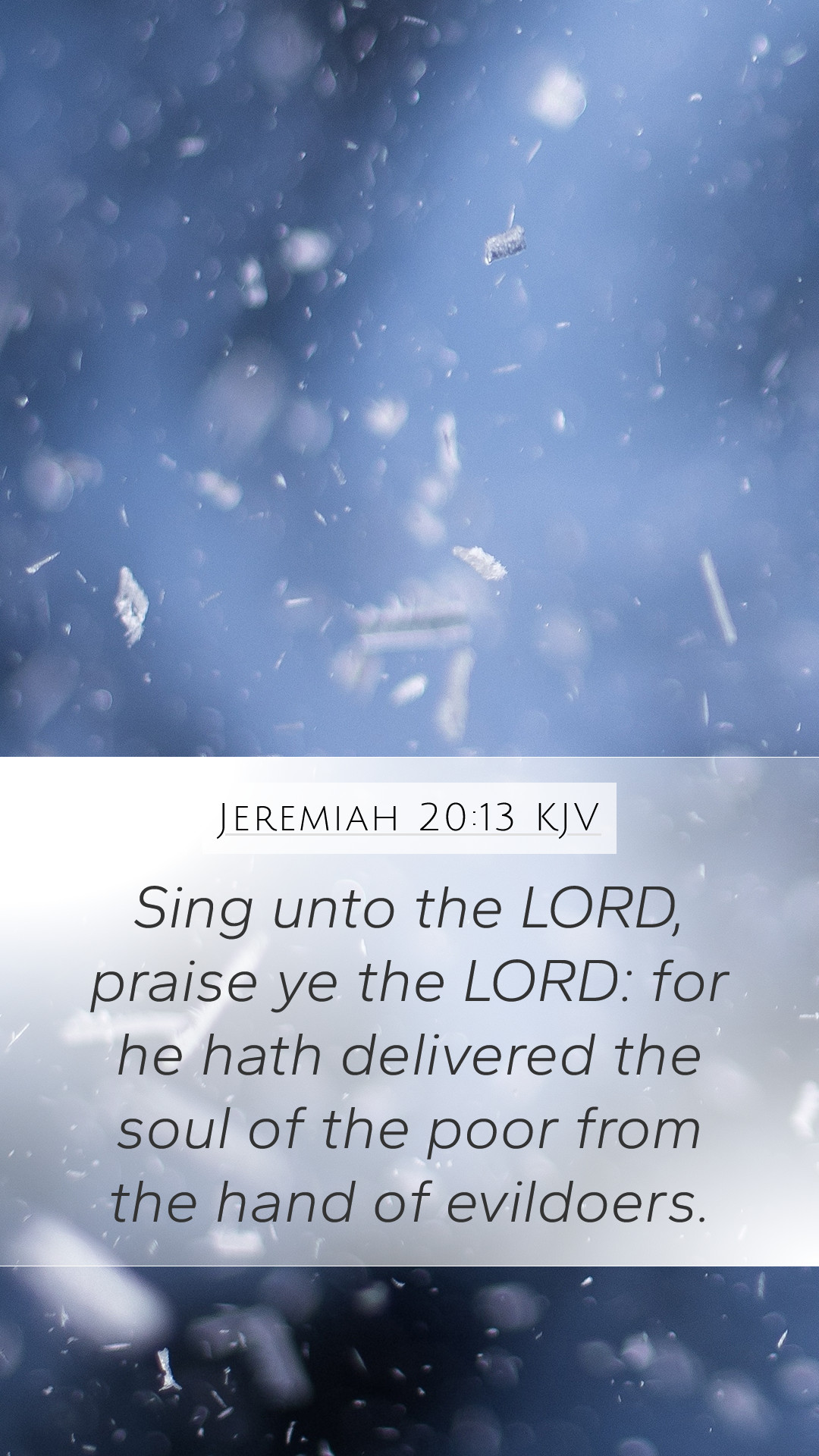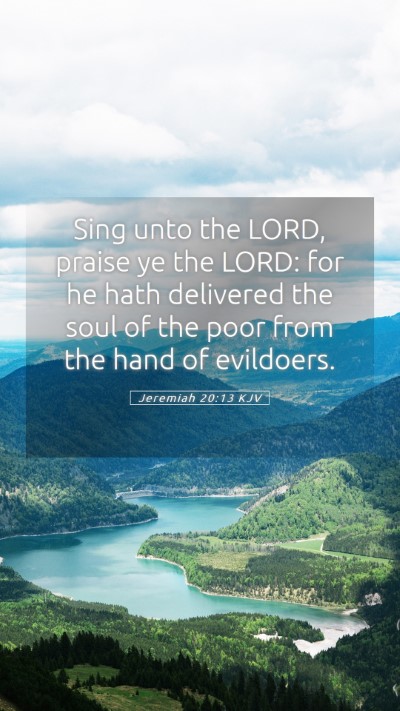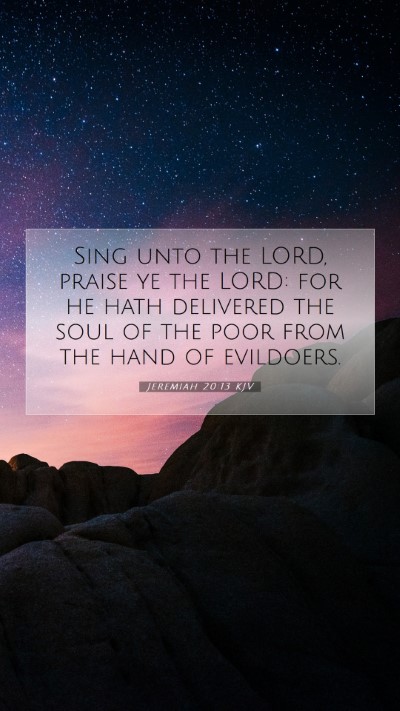Understanding Jeremiah 20:13
Verse: "Sing unto the Lord, praise ye the Lord: for he hath delivered the soul of the poor from the hand of evildoers." - Jeremiah 20:13
Bible Verse Meanings
This verse emphasizes the importance of worship and praise in response to God’s deliverance. It highlights how the faithful are called to acknowledge God’s merciful acts, especially in times of oppression or hardship.
Bible Verse Interpretations
According to Matthew Henry, this act of singing and praising reflects an outpouring of gratitude for God's intervention. Despite Jeremiah's difficulties as a prophet, he recognizes that God has defended and saved those who are vulnerable, specifically the "poor." This suggests that God's attention is particularly drawn to the marginalized.
Albert Barnes notes that the phrase "delivered the soul of the poor" indicates a liberation from injustice. It reinforces the idea that divine justice often manifests in the liberation of those wronged by society, a theme prevalent throughout the scriptures.
Adam Clarke expounds on this by emphasizing the motive behind the praise: acknowledgment of deliverance. He suggests that true worship arises out of appreciation for God's work, particularly in restoring hope to those despondent due to evil or oppression.
Bible Verse Understanding
Jeremiah as a prophet faced severe trials, yet in this verse, he turns to the act of praising God. This signifies a profound posture of faith, where even in the midst of personal anguish, the believer recognizes God’s overarching sovereignty and benevolence.
Bible Verse Explanations
- Evildoers: The term refers to those who perpetrate wrong against others, a central theme in many of the prophetic writings.
- The Poor: Frequently highlighted in the Bible, the poor symbolize not only those lacking material wealth but also those suffering injustice and exploitation.
- Praise and Worship: Jeremiah encourages active participation in worship as an essential response to God’s goodness, reinforcing communal and personal faith practices.
Bible Verse Commentary
In examining the cultural and historical context of this verse, we discern that praising God amid oppression requires immense faith. Jeremiah’s call to praise serves not only as a personal declaration but as a message to the community that God's deliverance is always at work, encouraging unity and hope.
Scripture Analysis
This verse can resonate deeply in various contexts, particularly in contemporary discussions around social justice, where the faithful are impelled to seek liberation for the oppressed and vulnerable in society.
Additional Bible Cross References
- Psalms 34:6: "This poor man cried, and the Lord heard him, and saved him out of all his troubles."
- Psalms 146:7: "Which executeth judgment for the oppressed: which giveth food to the hungry. The Lord looseth the prisoners."
- Isaiah 61:1: "The Spirit of the Lord God is upon me; because the Lord hath anointed me to preach good tidings unto the meek; he hath sent me to bind up the brokenhearted, to proclaim liberty to the captives..."
Bible Study Insights
This verse presents a rich landscape for Bible study groups and discussions about how believers are called to respond to adversity with faith. It invites exploration into various Bible study topics that discuss praise, deliverance, and social justice from a biblical perspective.
Conclusion
In conclusion, Jeremiah 20:13 reflects an essential understanding of faith in action. It teaches how the faithful are to maintain a spirit of worship as a response to God's deliverance, which is vital for encouraging those around them in their spiritual journeys.


